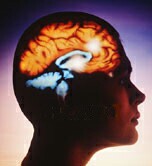Overall knowledge base highest for seniors
FRIDAY, March 13, 2015 (HealthDay News) — While some thinking skills begin to decline as one ages, researchers found that others don’t peak until middle age or even later. The study will appear in an upcoming issue of Psychological Science.
The study, which included almost 50,000 people, raises the prospect that people in their 40s and 50s do a better job of translating emotional signals from other people, while seniors have more overall knowledge. Young adults, meanwhile, think faster and have more short-term memory. “There is no peak age for brain function. It all depends on the particular aspect you are looking at,” study coauthor Laura Germine, Ph.D., of the Massachusetts General Hospital’s Center for Human Genetic Research in Boston, told HealthDay. “While some aspects of cognition are declining, others are still improving.”
The findings are based in part on an analysis of the responses of slightly over 48,500 people who took online tests on the websites gameswithwords.org and testmybrain.org. The researchers report that various thinking skills peaked — in general — at different times in life. On average, people think the fastest around age 18 and 19, while their short-term memory peaks at around age 25, and the ability to read people’s emotional states is best in the 40s and 50s. “Crystalized intelligence,” a measurement of accumulated knowledge that’s based on vocabulary tests, doesn’t tend to peak until people are in their late 60s or early 70s.
The study didn’t follow individual people over time, but is instead a snapshot at one point in the lives of people of varying ages. And it didn’t include people who aren’t Internet-savvy, although the researchers also analyzed statistics from studies that did not involve online tests. The results also conflict with some previous research on different generations of people, but this could be due to changes in society, Germine said.
Copyright © 2015 HealthDay. All rights reserved.








